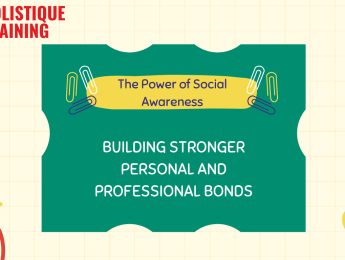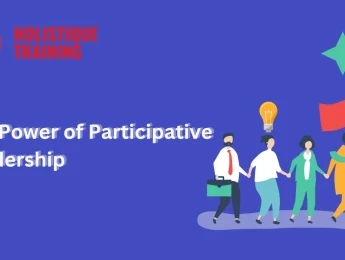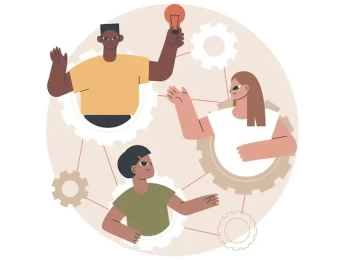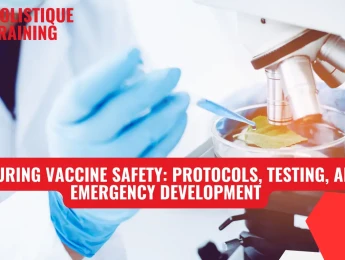- Table of Contents
- Introduction
- What is Social Awareness?
- How is Social Awareness Defined?
- What are the Key Social Awareness Skills?
- How Can You Develop Social Awareness?
- Why is Social Awareness Important?
- Table 1: The Importance of Social awareness
- Challenges in Developing Social Awareness
- Strategies for Developing Social Awareness
- Table 2: Strategies for Developing Social Awareness
- Conclusion
Introduction
In today’s interconnected world, social awareness is a crucial element of emotional intelligence. It involves recognizing and understanding the emotions, perspectives, and needs of others, and responding effectively in various social situations. Social awareness is not limited to individual interactions; it also encompasses understanding group dynamics and societal norms, contributing to more effective communication and stronger relationships both personally and professionally.
Social awareness includes empathy, the ability to interpret social cues, knowledge of social norms, and appropriate responsiveness. These skills are essential for building meaningful connections, fostering inclusive environments, and resolving conflicts. Developing social awareness enables individuals to navigate complex social landscapes, enhance teamwork, and create a positive atmosphere in any setting.
In this article, we will delve into the definition of social awareness, identify key skills, explore methods for development, and address common challenges. By enhancing social awareness, individuals can contribute to a more empathetic and cohesive society.
What is Social Awareness?
Social awareness is a critical aspect of emotional intelligence that involves recognizing and understanding the emotions, perspectives, and needs of others. It is the ability to empathize with others and respond appropriately in various social situations. Social awareness extends beyond individual interactions to include understanding the dynamics of groups and societal norms. In both personal and professional contexts, social awareness facilitates better relationships, effective communication, and a more harmonious coexistence.
The importance of social awareness cannot be overstated. In personal life, it helps in building strong, supportive relationships and fosters a sense of community and belonging. In professional settings, social awareness is crucial for teamwork, leadership, and customer relations. Individuals who are socially aware are better equipped to navigate complex social situations, resolve conflicts, and create a positive environment for themselves and others.
How is Social Awareness Defined?
Social awareness can be defined as the ability to accurately perceive and understand the emotions and perspectives of others, and to use this understanding to interact effectively in social situations. This involves several key components:
- Empathy: The capacity to put oneself in someone else's shoes and understand their feelings and experiences. Empathy involves both cognitive and emotional components—understanding another's perspective (cognitive empathy) and sharing their feelings (emotional empathy).
- Social Perception: The ability to interpret social cues, such as body language, facial expressions, and tone of voice. This skill allows individuals to understand unspoken feelings and intentions, facilitating better communication and interaction.
- Social Knowledge: Awareness of social norms, values, and rules that govern behavior in different contexts. This includes understanding cultural differences and being sensitive to the social dynamics within a group.
- Social Responsiveness: The ability to respond appropriately to social cues and interactions. This involves adjusting one's behavior to fit the social context and the needs of others.
Social awareness is closely related to emotional intelligence, which encompasses self-awareness, self-regulation, motivation, empathy, and social skills. While emotional intelligence focuses on managing one's own emotions, social awareness emphasizes understanding and responding to the emotions of others.
What are the Key Social Awareness Skills?
Several key skills contribute to social awareness. Developing these skills can enhance one's ability to connect with others and navigate social environments effectively.
- Empathy: As mentioned earlier, empathy is the cornerstone of social awareness. It involves understanding and sharing the feelings of others. Empathy helps in building trust and rapport, and it is essential for effective communication and conflict resolution.
- Active Listening:Active listening involves fully concentrating on what the other person is saying, rather than passively hearing the message. It includes acknowledging the speaker, providing feedback, and withholding judgment. Active listening fosters mutual respect and understanding.
- Cultural Sensitivity: This skill involves being aware of and respecting cultural differences. Cultural sensitivity is crucial in today's diverse and globalized world, as it enables individuals to interact harmoniously with people from various backgrounds.
- Perspective Taking: Perspective taking is the ability to see things from someone else's point of view. It requires an open mind and the willingness to consider different perspectives. This skill helps in understanding others' motivations and actions, leading to more effective problem-solving and collaboration.
- Non-verbal Communication: Understanding and using non-verbal cues, such as facial expressions, gestures, and body language, are vital for effective social interaction. Non-verbal communication often conveys more information than words alone and can help in interpreting the true meaning behind someone's words.
How Can You Develop Social Awareness?
Developing social awareness is a continuous process that involves self-reflection, learning, and practice. Here are some strategies to enhance social awareness:
- Practice Empathy: Make a conscious effort to understand and share the feelings of others. Engage in active listening and try to see situations from others' perspectives. Reflect on how your actions and words might affect others.
- Improve Active Listening Skills: Focus on truly understanding what others are saying. Pay attention to their words, tone, and body language. Show that you are listening through verbal acknowledgments and appropriate responses.
- Learn About Different Cultures: Educate yourself about different cultures and social norms. This can be done through reading, attending cultural events, or interacting with people from diverse backgrounds. Being culturally aware helps in appreciating and respecting differences.
- Observe Social Interactions: Pay attention to how people interact in different social settings. Observebody language, tone of voice, and social cues. This observation can provide valuable insights into social dynamics and improve your ability to navigate them.
- Seek Feedback: Ask for feedback from others about your social interactions. This can help you identify areas for improvement and gain a better understanding of how you are perceived by others.
- Reflect on Your Experiences: Take time to reflect on your social interactions. Consider what went well and what could have been done differently. Reflecting on your experiences can help you learn and grow.
- Develop Emotional Regulation Skills: Being able to manage your own emotions is crucial for social awareness. Practice techniques such as mindfulness, deep breathing, and self-reflection to improve your emotional regulation.
By continuously working on these strategies, you can develop stronger social awareness skills, leading to more meaningful relationships and effective interactions in both personal and professional settings. Social awareness is not just about understanding others; it is about building a more empathetic, inclusive, and connected world.
Why is Social Awareness Important?
Social awareness plays a crucial role in various aspects of life, from personal relationships to professional environments. Here are several reasons why developing social awareness is essential:
- Enhancing Personal Relationships: Social awareness helps in understanding and responding to the emotions and needs of friends and family members. It fosters empathy, which is vital for building trust and intimacy in relationships. By being socially aware, individuals can offer better support and communicate more effectively, leading to stronger and more fulfilling relationships.
- Improving Professional Relationships: In the workplace, social awareness is key to effective teamwork and collaboration. Understanding colleagues' perspectives and emotions can lead to more harmonious and productive working relationships. Socially aware individuals are better at managing conflicts, motivating team members, and leading with empathy, which contributes to a positive and efficient work environment.
- Fostering Inclusive Environments: Social awareness promotes inclusivity by encouraging respect and understanding of diverse perspectives and backgrounds. This is particularly important in multicultural settings, where being aware of cultural differences can enhance cooperation and reduce misunderstandings. Inclusive environments are more innovative and resilient, as they leverage the strengths of diverse teams.
- Resolving Conflicts Effectively: Social awareness equips individuals with the skills to manage and resolve conflicts constructively. By understanding the underlying emotions and motivations of others, socially aware individuals can address issues calmly and empathetically. This leads to more effective problem-solving and less emotional strain during conflicts.
- Promoting Emotional Well-being: Being socially aware contributes to overall emotional well-being. It helps individuals navigate social interactions with confidence and reduces the likelihood of misunderstandings and negative encounters. By fostering positive relationships and a supportive social network, social awareness can enhance mental health and reduce stress.
Table 1: The Importance of Social awareness
Importance | Description |
Enhancing Personal Relationships | Helps in understanding and responding to the emotions and needs of others, building trust, and improving communication. |
Improving Professional Relationships | Key to effective teamwork, conflict management, and leadership by understanding colleagues' perspectives and emotions. |
Fostering Inclusive Environments | Promotes respect for diverse perspectives, enhancing cooperation and reducing misunderstandings in multicultural settings. |
Resolving Conflicts Effectively | Enables constructive conflict resolution by understanding emotions and motivations, leading to better problem-solving. |
Promoting Emotional Well-being | Contributes to mental health by fostering positive interactions and reducing misunderstandings and stress. |
Challenges in Developing Social Awareness
Despite its importance, developing social awareness can be challenging. Here are some common obstacles and strategies to overcome them:
- Overcoming Biases and Prejudices: Everyone has biases and prejudices that can cloud their judgment and hinder social awareness. Acknowledging and addressing these biases through self-reflection and education is crucial. Engaging in open conversations and exposing oneself to diverse perspectives can help reduce biases.
- Dealing with Emotional Overload: Being highly attuned to others' emotions can sometimes lead to emotional overload. It is essential to practice self-care and set healthy boundaries to manage one's own emotional well-being while being socially aware.
- Navigating Cultural Differences: Understanding and respecting cultural differences can be challenging, especially in diverse and globalized settings. Continuous learning, seeking cultural experiences, and approaching interactions with an open mind can help navigate these differences.
- Balancing Self-awareness with Social Awareness: While it is important to be aware of others' emotions, it is equally important to be self-aware. Balancing self-awareness and social awareness requires mindfulness and the ability to regulate one's own emotions while being empathetic towards others.
- Managing Social Anxiety and Introversion:Social anxiety and introversion can make social interactions daunting. Building social awareness skills gradually, starting with small interactions, and seeking support from trusted individuals can help manage these challenges.
By recognizing and addressing these challenges, individuals can continue to develop their social awareness and enhance their ability to connect with others effectively.
Strategies for Developing Social Awareness
- Practice Empathy: Make a conscious effort to understand and share the feelings of others. Engage in active listening and try to see situations from others' perspectives. Reflect on how your actions and words might impact those around you. Empathy-building exercises, such as imagining yourself in someone else's situation or discussing emotional experiences with others, can enhance your empathetic abilities.
- Improve Active Listening Skills: Focus on truly understanding what others are saying. Pay close attention to their words, tone, and body language. Show that you are listening through verbal acknowledgments and appropriate responses. Techniques like summarizing what the speaker has said or asking clarifying questions can improve your listening skills and ensure that you grasp the full context of conversations.
- Learn About Different Cultures: Educate yourself about various cultures and social norms through reading, attending cultural events, or interacting with people from diverse backgrounds. Understanding cultural differences helps in appreciating and respecting various perspectives and practices, which is crucial for building inclusive relationships and avoiding misunderstandings.
- Observe Social Interactions: Pay attention to how people interact in different social settings. Observe non-verbal cues, tone of voice, and social dynamics. Watching others' interactions can provide valuable insights into effective communication strategies and social norms, which can be applied in your own interactions.
- Seek Feedback: Ask for feedback from others about your social interactions. This can help you identify areas for improvement and gain a better understanding of how you are perceived by others. Constructive feedback from friends, colleagues, or mentors can offer different perspectives on your social behavior and guide your development.
- Reflect on Your Experiences: Take time to reflect on your social interactions and experiences. Consider what went well and what could have been done differently. Reflecting on past interactions helps you learn from them and improve your approach to future social situations.
- Develop Emotional Regulation Skills: Managing your own emotions is crucial for social awareness. Practice techniques such as mindfulness, deep breathing, and self-reflection to improve your emotional regulation. Being emotionally balanced enables you to respond more effectively to others' emotions and maintain a calm and composed demeanor in social situations.
Table 2: Strategies for Developing Social Awareness
Strategy | Description |
Practice Empathy | Understand and share others' feelings. Use empathy-building exercises like imagining different perspectives. |
Improve Active Listening | Focus on fully understanding others' words, tone, and body language. Use techniques like summarizing and asking clarifying questions. |
Learn About Different Cultures | Educate yourself about diverse cultures and norms to build inclusive relationships and avoid misunderstandings. |
Observe Social Interactions | Pay attention to social cues and dynamics in various settings to understand effective communication strategies. |
Seek Feedback | Request feedback on your social interactions to identify areas for improvement and understand how others perceive you. |
Reflect on Your Experiences | Reflect on past social interactions to learn from them and improve future interactions. |
Develop Emotional Regulation Skills | Practice mindfulness, deep breathing, and self-reflection to manage your own emotions and respond effectively to others. |
Conclusion
Social awareness is a fundamental aspect of emotional intelligence that significantly impacts personal and professional relationships. By understanding and empathizing with others, recognizing social cues, and responding appropriately, individuals can foster stronger connections and navigate social dynamics more effectively. Developing these skills involves continuous self-reflection, active listening, cultural sensitivity, and emotional regulation.
Despite challenges like biases and emotional overload, the benefits of enhanced social awareness—such as improved relationships, better conflict resolution, and a more inclusive environment—are well worth the effort. By actively working to enhance social awareness, individuals contribute to a more empathetic and harmonious society, enriching their own lives and the lives of those around them.
























